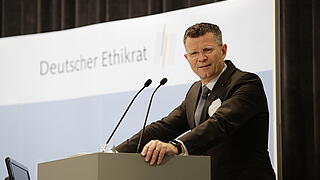New genetic research findings and technological developments allow ever deeper insights and more comprehensive interventions into the genome. Advances in the sequencing of genes and in analysing their interactions (with each other and with other factors) are enabling an increasingly precise understanding of their tissue- and situation-specific functions.
On this basis, genetic tests are being developed that can provide information about individual genes or the entire genome of an organism. They are used, for example, when certain diseases are suspected or to detect or rule out other gene variants relevant for health. Genetic tests are also utilised in prenatal or pre-implantation diagnostics, in safety and efficacy studies of drugs and in verifying family relationships. Depending on the area of application, different individual and socio-ethical questions are involved.
Modern genetic engineering methods such as genome editing enable much faster, more precise and more cost-effective modifications of genes. The resulting prospects for customised interventions in the genomes of plants, animals and humans are associated with new social challenges. In addition, familiar issues are returning to the centre of the ethical debate, for example, pertaining to the regulation and safety of genetically modified organisms. When it comes to human applications, interventions in the human germline and their effects on future offspring are particularly controversial, just like certain methods of genetic diagnostics.
Advances in the cultivation of cells and tissues also open up new scientific and therapeutic opportunities, especially when combined with genetic interventions. Human stem cells in particular are associated with both great expectations and controversy. Depending on whether embryonic, adult or so-called induced pluripotent stem cells are involved, there are both different potential applications and associated ethical issues. The latter concern, for example, the admissibility of research with human embryonic stem cells and the creation of embryos and embryo-like structures. Cloning procedures and possibilities of mixing human and animal genetic and cell material also attract a great deal of attention in bioethics, as do new approaches in reproductive medicine and efforts to replace damaged tissue or organ functions with genetically modified stem cells.
![[Translate to English:]](/fileadmin/_processed_/6/d/csm_shutterstock_2408646991_web_9384db23ae.jpg)

















